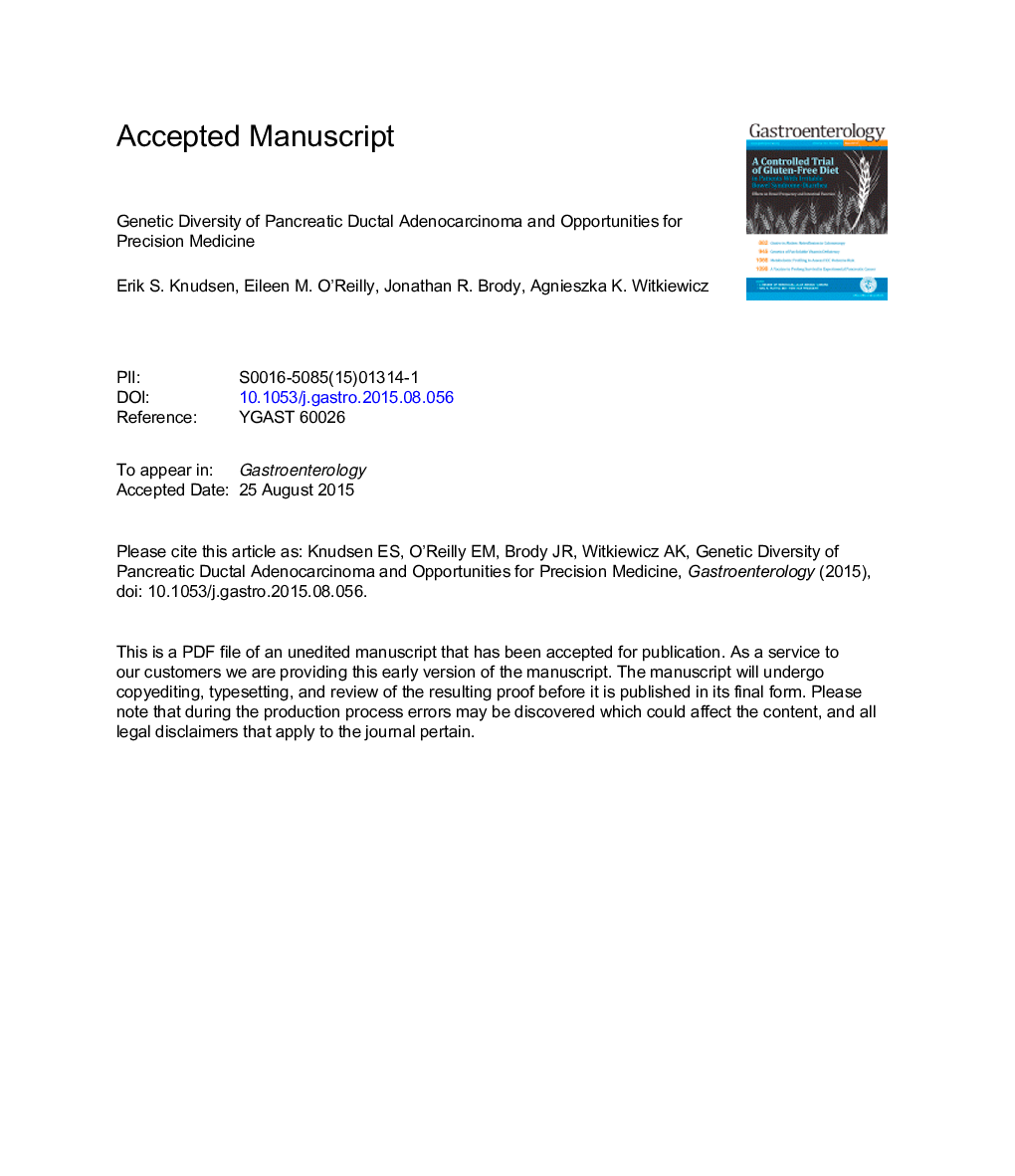| Article ID | Journal | Published Year | Pages | File Type |
|---|---|---|---|---|
| 6092867 | Gastroenterology | 2016 | 33 Pages |
Abstract
Patients with pancreatic ductal adenocarcinoma (PDA) have a poor prognosis despite new treatments; approximately 7% survive for 5 years. Although there have been advances in systemic, primarily cytotoxic, therapies, it has been a challenge to treat patients with PDA using targeted therapies. Sequence analyses have provided a wealth of information about the genetic features of PDA and have identified potential therapeutic targets. Preclinical and early-phase clinical studies have found specific pathways could be rationally targeted; it might also be possible to take advantage of the genetic diversity of PDAs to develop therapeutic agents. The genetic diversity and instability of PDA cells have long been thought of as obstacles to treatment, but are now considered exploitable features. We review the latest findings in pancreatic cancer genetics and the promise of targeted approaches in PDA therapy.
Keywords
Related Topics
Health Sciences
Medicine and Dentistry
Gastroenterology
Authors
Erik S. Knudsen, Eileen M. O'Reilly, Jonathan R. Brody, Agnieszka K. Witkiewicz,
